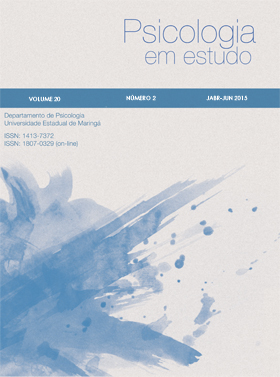UNA CONCEPCIÓN INTEGRADORA DE LA MOTIVACIÓN HUMANA
Abstract
Las teorías de la motivación desarrolladas en el siglo XX son opuestas. Se requiere una que, sobre la base de los hechos, integre armónicamente los aportes logrados. Destacamos el aprendizaje de las necesidades, basado en determinantes orgánicos y adquiridos, mediante el reforzamiento afectivo de los objetos del mundo exterior y de las palabras en que se canalizan. Los requerimientos orgánicos se concretan en los objetos y en las palabras. Las necesidades superiores surgen por la asimilación del lenguaje y se constituyen en determinantes independientes de los requerimientos orgánicos y entre ellos y con el desarrollo psíquico, los deberes asumidos predominan por lo general en los conflictos. En su conducta, inicialmente reactiva y adaptativa, el sujeto va elaborando proyectos creativos dirigidos al futuro que conducen a su auto realización. Así existe la unidad y determinación recíprocas de la adaptación y la auto realización, como explicación de la conducta humana. En las contradicciones de la vida se imponen dos dinamismos: la motivación específica, dirigida a obtener el objeto meta de la necesidad, y la motivación inespecífica ante la frustración y el conflicto, dirigida a reducir por otras vías la tensión insatisfactoria. Ambos dinamismos se encuentran en unidad, pero la específica es típica de la motivación normal en la cual predominan, en forma relativamente armónica e integradora, los proyectos y fines asumidos, mientras que la inespecífica es predominante en la motivación anormal, en la cual los determinantes inconscientes y externos asumen un rol principal. Solo la verdad más plena será lo más útil para el ser humano.
Downloads
Riferimenti bibliografici
Freud, S. (1948). Sigmund Freud. Obras Completas. Madrid: Biblioteca Nueva.
González, D. J. (1977). Lecciones de Motivación. La Habana: Impresora Universitaria André Voisin.
González, D. J. (2017). Los Niveles de la Motivación. Teoría y Evaluación. La Habana: Pueblo y Educación.
Leontiev, A. N. (1966). Las necesidades, los motivos y la conciencia. Anales del XVIII Congreso Internacional de Psicología, Moscú, Rusia.
Lewin, K. (1946). Behavior and development as a function of the total situation. En Manual of Child Psychology . New York: Wiley.
Luria, A. R. (1978). El Cerebro en Acción. La Habana: Pueblo y Educación.
Maslow, A. H. (1954). Motivation and personality. New York: Harper.
Rubinstein, S. L. (1967). Principios de Psicología General. México, DF: Grijalbo S. A.
Skinner, B. F. (1969). Contingences of reinforcement. A theoretical analysis. New York: Appleton-Century-Crofts.
Vygotski, L. S. (1993). Pensamiento y Lenguaje. En L. S. Vygotski. Obras Escogidas (Tomo II). Madrid: Visor Distribuciones S. A.
Vygotski, L. S. (1996). Paidología del Adolescente. En L. S. Vygotski. Obras Escogidas (Tomo IV). Madrid: Visor Distribuciones S. A.
Vygotski, L. S. (2000). Historia del Desarrollo de las Funciones Psíquicas Superiores. En L. S. Vygotski. Obras Escogidas (Tomo III). Madrid: Visor Distribuciones S. A. (Tomo III)
Watson, J. B. (1924). Behaviorism. New York: People Institute.
As opiniões emitidas, são de exclusiva responsabilidade do(s) autor(es). Ao submeterem o manuscrito ao Conselho Editorial de Psicologia em Estudo, o(s) autor(es) assume(m) a responsabilidade de não ter previamente publicado ou submetido o mesmo manuscrito por outro periódico. Em caso de autoria múltipla, o manuscrito deve vir acompanhado de autorização assinada por todos os autores. Artigos aceitos para publicação passam a ser propriedade da revista, podendo ser remixados e reaproveitados conforme prevê a licença Creative Commons CC-BY.
The opinions expressed are the sole responsibility of the author (s). When submitting the manuscript to the Editorial Board of Study Psychology, the author (s) assumes responsibility for not having previously published or submitted the same manuscript by another journal. In case of multiple authorship, the manuscript must be accompanied by an authorization signed by all authors. Articles accepted for publication become the property of the journal, and can be remixed and reused as provided for in theby a license Creative Commons CC-BY.
















